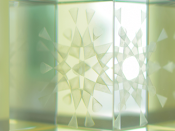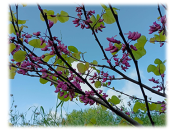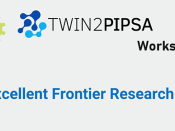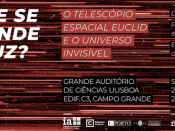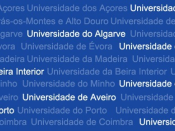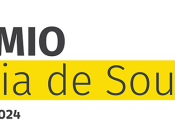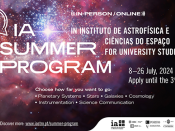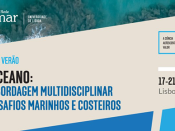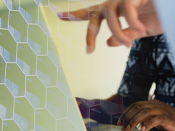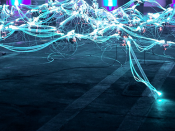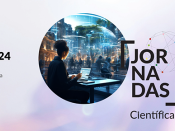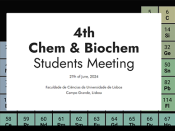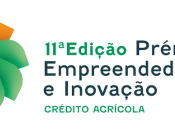Por Daniel Galaviz (LIP, FCUL).
Sentences like "We are made of star-stuff" (Carl Sagan) or "Nuclei are the DNA of the cosmos" (Stan Woosley) already tell us that our origin is undoubtedly linked to stars. Besides Hydrogen and Helium, all chemical elements are currently produced in the various stages of the life of stars. While light isotopes are synthesized in the steady-burning phases of the star, a large fraction of the heavy isotopes present in our universe is produced in explosive scenarios in which the properties of radioactive nuclei are key to understand these nucleosynthesis processes. In this talk I will introduce the synthesis processes responsible for the chemical elements heavier than iron, and bring you to the European installations where radioactive isotopes are produced for fundamental and applied research, along with the experiments we perform at LIP to complete the Universe's DNA picture.
Short Bio: Daniel Galaviz is an Assistant Professor at the Physics Department at FCUL since 2013. He obtained his PhD at the Technische Universitaet Darmstadt (Germany) in 2004, in the field of experimental nuclear astrophysics. After two postdoctoral stays in Michigan State University (USA) and the Spanish Research Council CSIC in Madrid, he arrived to Lisbon in 2008. Since 2016, he is part of the Laboratory for Instrumentation and experimental Particle physics (LIP), being the head of the NUC-RIA (Nuclear Reactions, Instrumentation and Astrophysics) group. Trying to unveil through different approaches the origin of the natural elements in our universe, his work has concentrated in the preparation and execution of nuclear reaction experiments with radioactive beams at international facilities, while developing various types of instrumentation for these measurements. He is the LIP's representative at the R3B collaboration of the FAIR and at the EURO-Labs EU Infrastructure consortium, and the Portuguese representative at the IberoAmerican Network for Nuclear Astrophysics (IANNA).





